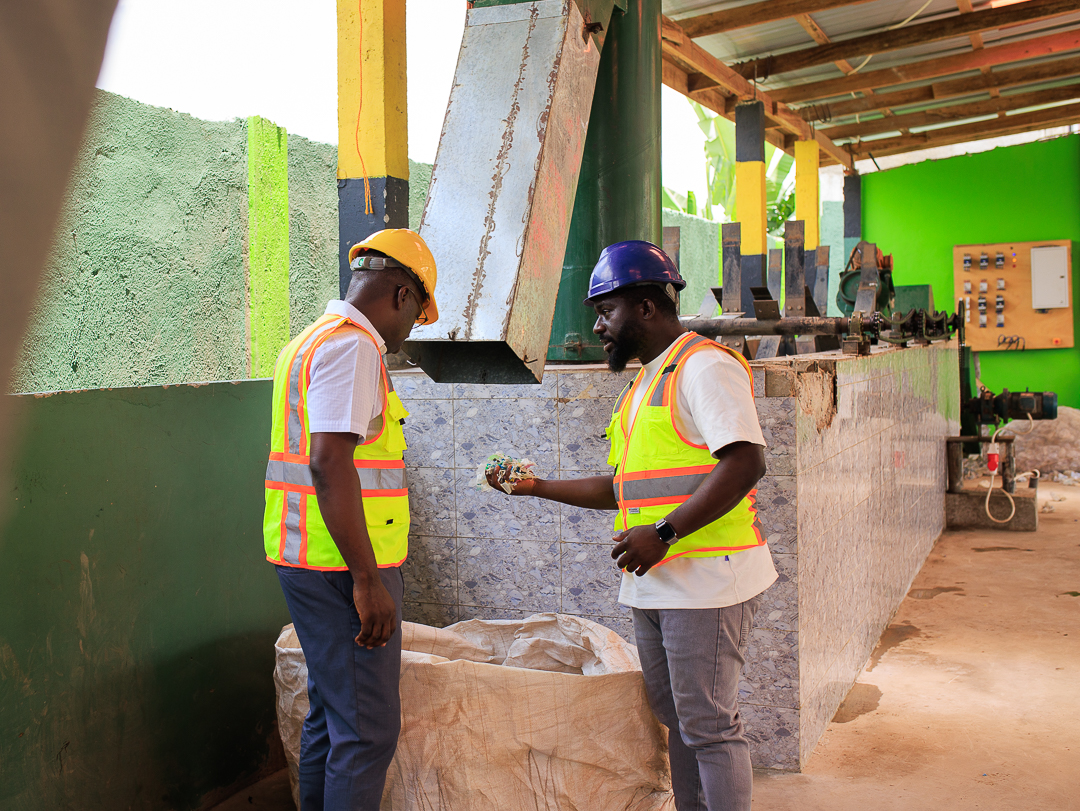Partnership Opportunity: Advancing Ghana’s
Circular Economy with Rayrolt
Partner With Us
At Rayrolt Environment and Recycling Services, our commitment to sustainable waste management goes beyond environmental preservation—it is a powerful driver of economic growth, job creation, and industrial transformation in Ghana.
Currently, we operate a fully functional recycling facility where we:
• Shred LDPE (Low-Density Polyethylene) waste into reusable plastic flakes.
• Bale PET (Polyethylene Terephthalate) plastic waste for export.
These unfinished raw materials are exported to other countries, where they are further processed into finished consumer and industrial products. While this model contributes to global recycling efforts, it presents a missed economic opportunity for Ghana. Exporting raw recyclable materials means we are outsourcing the value-adding stage of production—losing potential revenue, industrial capabilities, and employment opportunities locally.
Our Call for Strategic Partnerships
To address this challenge, Rayrolt is actively seeking partnerships with:
• Private sector investors
• Manufacturing companies
• Government agencies
• NGOs and development partners
• Technical and academic institutions

Our goal is to retain and repurpose these recyclable materials within Ghana by transforming them into finished goods, including:
Food-grade plastic bags and packaging materials from LDPE
PVC pipes and construction-related plastic products from PET and LDPE
Why Partner with Rayrolt?
• We have an operational facility with existing infrastructure and logistics.
• We are located in close proximity to Kwame Nkrumah University of Science and Technology (KNUST)—ideal for research, development, and skilled manpower access.
• We have strong community ties and a network of trained waste collectors and processors.
• Our model supports the Ghanaian government’s waste management goals and the UN Sustainable Development Goals (SDGs).
The Impact of Partnership
By partnering with Rayrolt, we can:
• Boost Ghana’s local manufacturing industry
• Create thousands of new jobs in recycling, production, and distribution
• Generate export-quality finished goods
• Reduce plastic import dependency
• Conserve the environment and reduce landfill pressure
Join Us in Building Ghana’s Green Industrial Future
Together, we can close the loop in Ghana’s recycling economy, promote industrial self-reliance, and establish Ghana as a leader in eco-conscious manufacturing in West Africa.